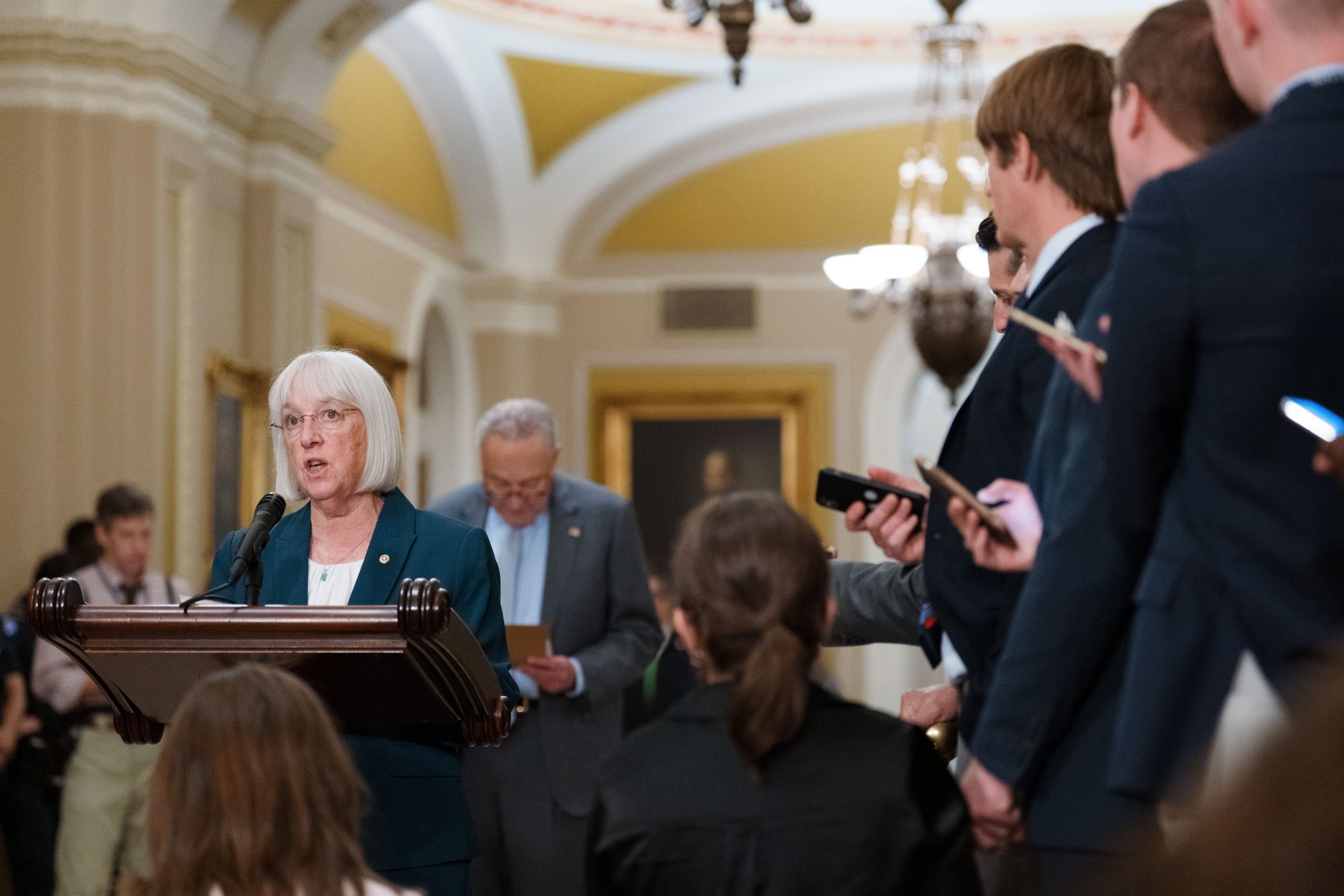Murray: “No woman should have to face menopause alone or figure out their health care by themselves—but we have a long way to go to change that reality.”
ICYMI: Senator Murray introduces bipartisan legislation to boost menopause research and expand training and awareness around menopause
***Watch video of the event HERE***
Washington DC -Today, Senator Patty Murray (D-WA), a senior member and former chair of the Senate Health, Education, Labor, and Pensions (HELP) Committee, joined national advocates who are shining a light on the disparities in menopausal care and women’s mid-life health. Senator Murray spoke with Denise Pines and Tamsen Fadal—both are Executive Producers of the documentary, “The M Factor: Shredding the Silence on Menopause,” and Pines is also President of the Osteopathic Medical Board of California.
“No woman should have to face menopause alone or figure out their health care by themselves—but we have a long way to go to change that reality. For too long, menopause has been viewed as a dirty word instead of a common health care issue, and the result is that too many women can’t get the information and health care they need for something that every one of us will go through,” dijo el senador Murray. “We have to do more when it comes to researching menopause, filling gaps in knowledge, and making sure health care providers have the tools and resources they need to help women going through menopause. That’s why we need conversations like this to break the stigma around menopause—and it’s why we need federal action like my bipartisan bill to strengthen our national response and nationwide understanding about menopause.”
During the discussion, Senator Murray highlighted her bipartisan legislation, the Advancing Menopause Care and Mid-Life Women’s Health Act, which she introduced earlier this year. The bill would boost federal research on menopause and—for the first time—coordinate the federal government’s existing programs related to menopause and mid-life women’s health, and the work being done on the ground to fill the gaps in women’s mid-life health education, resources, and research.
Right now, in the U.S., 75 million women are in perimenopause, menopause, or post-menopause—with 6,000 more women reaching menopause each day. But despite the fact that half the population in the U.S. will eventually experience menopause, menopause research has long been underinvested in y overlooked. To date, there are few federally funded clinical trials on menopause and menopausal hormone therapy and very little menopause education for doctors—only 30 percent of U.S. residency programs offer a formal menopause curriculum according to a recent survey, and 80 por ciento of OB-GYN residents admit to being ill-prepared to discuss menopause.
Video of the discussion can be found AQUÍ.
###


